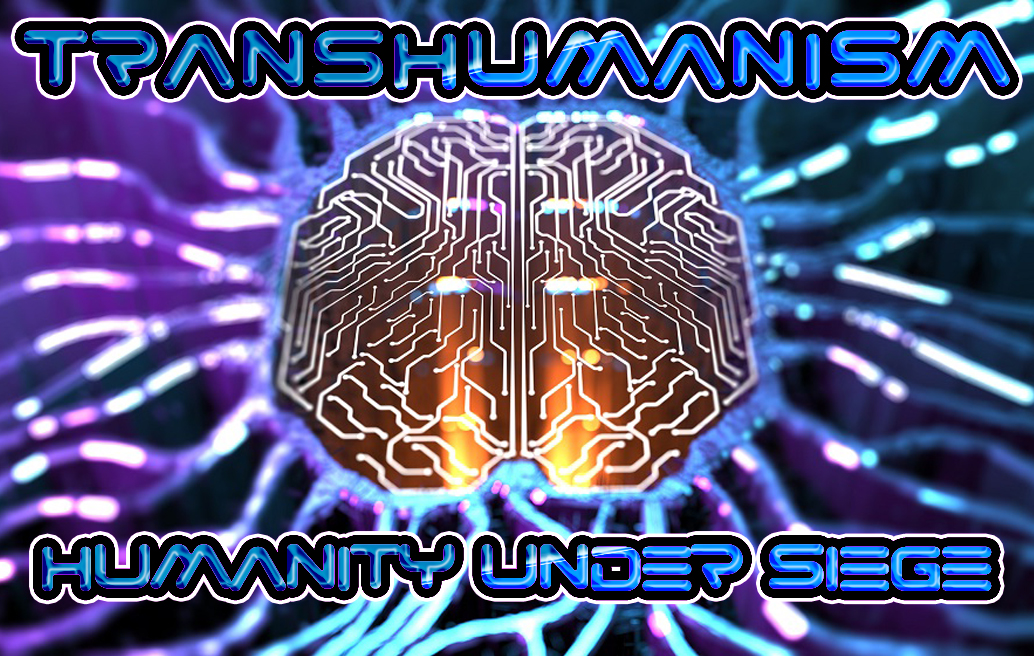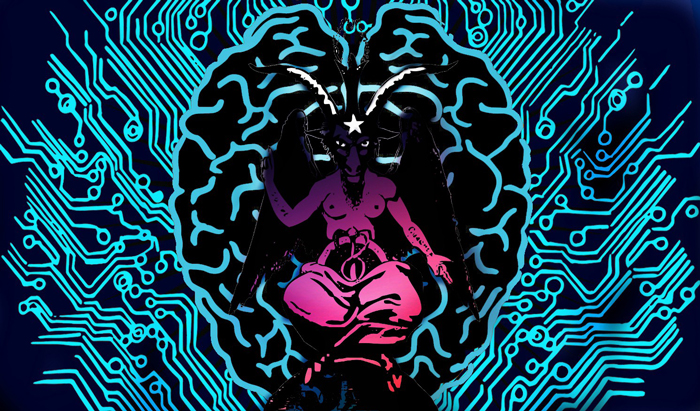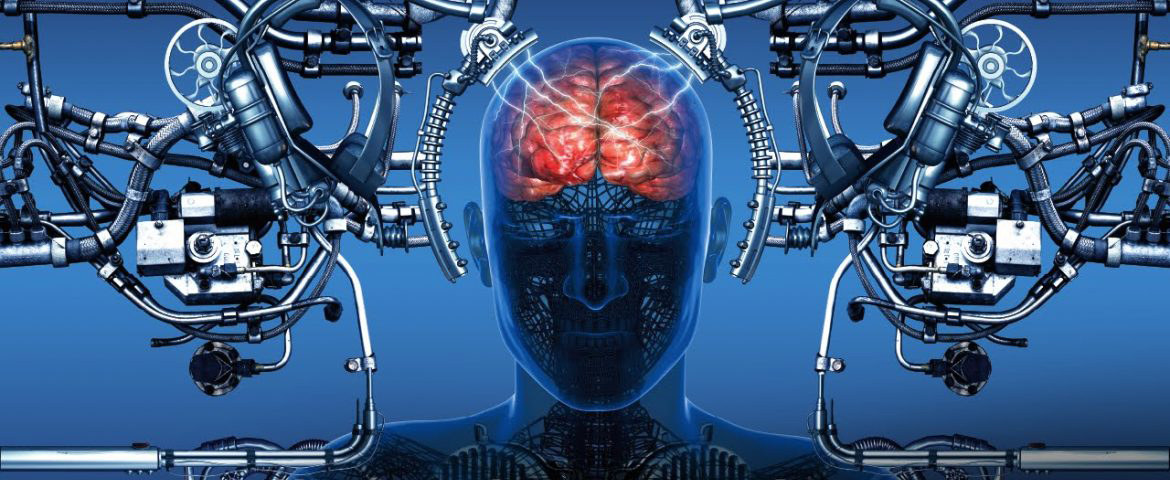

|
Transhumanism is Satan’s ultimate goal: men created in his own image. |
Isaiah 14 contains a fascinating—and, quite frankly, appalling—glimpse into Satan’s mind and motivations.
 How you are fallen from heaven,
How you are fallen from heaven,
O Lucifer, son of the morning!
… For you have said in your heart:
“I will ascend into heaven,
I will exalt my throne above the stars of Elohim;
I will also sit on the mount of the congregation
On the farthest sides of the north;
I will ascend above the heights of the clouds,
I will be like the Most High.”
The sheer arrogance of such a boast is breathtaking. But have you ever thought about just how Satan plans to “be like the Most High”? This isn’t simply vain talk. To understand how Satan plans to be like Yahuwah, it’s necessary to analyze what sets Yahuwah apart as distinct from every other entity in the universe.
There are plenty of emotional reasons believers can give as to why Yahuwah is worthy of worship: He loves us; He sacrificed His son to save us; He forgives us, etc., etc. But in a cosmic legal sense, there is only one: Yahuwah created us. That’s it.
In vision, John saw twenty-four elders worshipping before Yahuwah’s throne. He heard them say:
You are worthy, O [Yahuwah],
To receive glory and honor and power;
For You created all things,
And by Your will they exist and were created.
Yahuwah is worthy of worship because He created all things. To be like Yahuwah, then, Satan must also create. This is the hidden agenda in his drive for transhumanism.
Scripture reveals “Elohim created man in His own image; in the image of Elohim He created him; male and female He created them.” (Genesis 1:27) It is Yahuwah’s prerogative, as Creator, to gift those He chooses with immortality. Lucifer wanted Adam and Eve to sin and then eat from the tree of life, thus creating immortal sinners. Yahuwah prevented this by banishing them from the Garden of Eden and posting cherubim to “guard the way to the tree of life.” (Genesis 3:24)
Now, the devil is attempting to be like the Most High by usurping the divine right to be worshiped by attempting to create man in his own image. His method? Transhumanism.
|
transhumanism trăns-hyoo͞′mə-nĭz″əm, trănz- noun
(The American Heritage Dictionary of the English Language.) |
Melding technology with biology can and has greatly benefitted humanity. Pacemakers and prosthetics are just two examples of how technology assists biology. The problem is, transhumanism is inseparably linked to posthumanism, which is the idea that humanity itself is going to bring about a more advanced, more evolved version of itself. We will no longer be human but post-human. A completely new and different species.

And, logically, it makes sense. If you believe humanity evolved from a lower life form, then using technology to “advance” to a higher life form is consistent with such beliefs. However, the issue is far more complicated than personal beliefs regarding the origin of our species. There are great dangers intrinsic to the transhumanist agenda.
Based on a neo-Darwinian worldview, it is upheld that humans should take evolution into their own hands and undertake broad-scale attempts to incorporate technologies into their own lives. These projects aim for a radical increase of bodily functions (i.e. healthspan, longevity), cognitive and emotional capacities (e.g. intellect, memory), physical traits (strength, beauty), and behavior (e.g. morality).1
While all this sounds good, ask yourself: “Who is going to define morality?” For believers, the Bible defines morality. The danger increases exponentially with the ability of technology to not only influence but actually control an individual’s thoughts, beliefs, and actions.
In 2021, the Ministry of Defense of the United Kingdome produced a project report in partnership with Germany’s Bundeswehr Office for Defense Planning. The report was called, “Human Augmentation — The Dawn of a New Paradigm, a Strategic Implications Project.” It stated: “Human augmentation will become increasingly relevant, partly because it can directly enhance human capability and behavior and partly because it is the binding agent between people and machines.”
The danger is more than sci-fi speculation. At the end of 2022, a company called Synchron possessed over 100 patents in their pursuit to meld technology with biology. They have created what they call an “endovascular brain computer interface.” Inserted into a blood vessel at the base of the neck, this Stentrode sensor migrates to the brain where it influences the motor cortex. As of July, 2022, the company had already inserted the device into four patients in Australia and one in the United States. This technology, and others like it, opens the door to outside forces controlling the minds and behavior of others. The goal is to fulfill Satan’s promise to Eve, “Ye shall be as gods.” (Genesis 3:5)
Yuval Harari is a professor and bestselling author. The Amazon description of his book, Homo Deus: A Brief History of Tomorrow, states:
Yuval Noah Harari … [turns] his focus toward humanity’s future, and our quest to upgrade humans into gods.
… As the self-made gods of planet earth, what destinies will we set ourselves, and which quests will we undertake? Homo Deus explores the projects, dreams and nightmares that will shape the twenty-first century—from overcoming death to creating artificial life. It asks the fundamental questions: Where do we go from here? And how will we protect this fragile world from our own destructive powers? This is the next stage of evolution. This is Homo Deus.
This, right here, is Satan’s ultimate goal. Transhumanism is his attempt to make himself “like the Most High.” By using technology to create mankind in his own image, he is attempting to usurp the right to be worshipped.
All who resist will be forced under threat of death. By contrast, only Yahuwah guarantees our freedom of choice. Only He deserves our worship. The final generation is commanded: “Fear [Yah] and give glory to Him, for the hour of His judgment has come; and worship Him who made heaven and earth, the sea and springs of water.” (Revelation 14:7)

1 Post- and Transhumanism: An Introduction. Editors, Stefan Sorgner and Robert Ranisch.